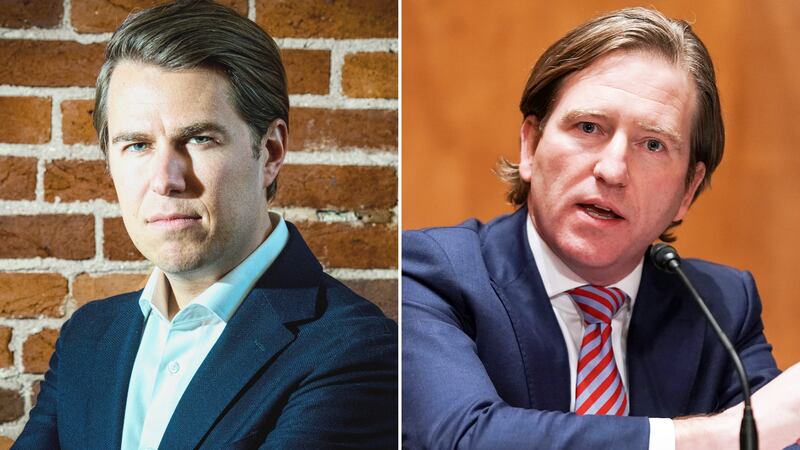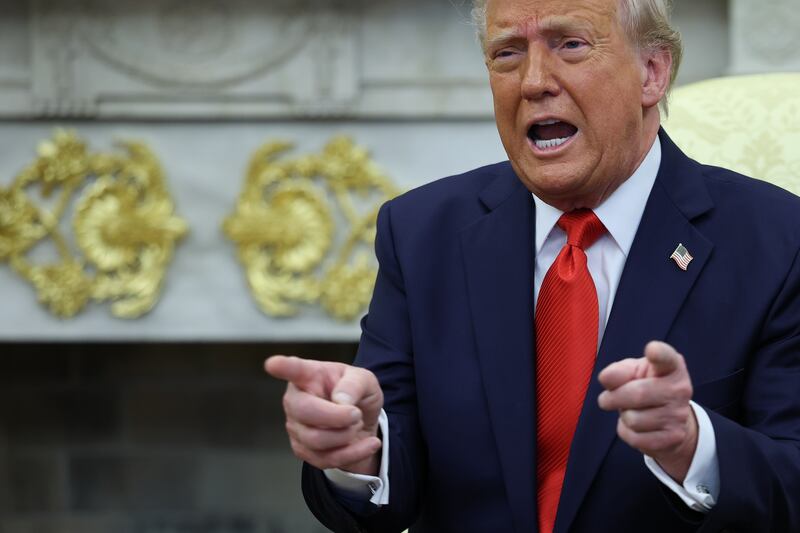The pace at which President Donald Trump is inventing new purposes for Presidential orders reminds me of George Washington Carver’s success in finding over 300 uses for peanuts. But Carver accomplished his feat—as well as numerous other scientific and agricultural innovations—over the span of 47 years at Tuskegee University; Trump has taken less than 100 days in his second term to issue over 100 executive orders.
Trump’s record-breaking pace seems dependent upon a penchant for inventing ways to use these orders to further personal grievances which are untethered to the law. A good (but also very bad) example is his using Presidential memoranda to accuse his own former officials, Miles Taylor and Chris Krebs of crimes including, in the case of Taylor, treason. Accusations of treason—a crime that carries with it a potential death sentence—made by an official Presidential decree are far more significant than mere rhetorical hyperbole.

Neither Taylor nor Krebs may be names top of mind today, but they apparently retain a prominent place in Trump’s psyche. As the director of Cybersecurity and Infrastructure Agency, Krebs discredited theories put forward by Trump that the 2020 election had been stolen. After his tenure as Chief of Staff to the Director of Homeland Security ended, meanwhile, Taylor wrote a memoir criticizing Trump’s handling of classified information, which was built upon revelations he shared in a bombshell “anonymous” op-ed describing many senior Trump officials as being part of resistance efforts to limit Trump’s impulses.
Trump explicitly accuses Taylor of treason in an order entitled “Addressing Risks Associated with an Egregious Leaker and Disseminator of Falsehoods.” After first asserting that Taylor “illegally published classified conversations,” it goes on to state:
“Where a Government employee improperly discloses sensitive information for the purposes of personal enrichment and undermining our foreign policy, national security, and Government effectiveness—all ultimately designed to sow chaos and distrust in Government—this conduct could properly be characterized as treasonous and as possibly violating the Espionage Act.”
Here, Trump is using the phrase “treason” with about as much legal precision as someone flipping off another driver in a fit of road rage. The constitutional definitions of treason—that it “shall consist only in levying War against [the United States], or in adhering to their Enemies, giving them Aid and Comfort”—do not come close to the facts Trump asserts. Nor does criminal law.

One would have to impart complete literal truth to the adage “the pen is mightier than the sword” to construe writing an opinion piece or publishing a memoir as “levying war” against the U.S. And are the readers of the New York Times’ opinion pages to be deemed as “enemies” of our country? Maybe Trump thinks they are, but his opinion does not and should not carry the force of law.
The order targeting Krebs fares no better. No matter. The real point of both is to attack those Trump holds grievances against—like his efforts to punish law firms whose employees had sought to investigate him. But in targeting individuals, the orders raise the stakes to an egregious, never-before seen exercise of Presidential power.
Professor Harold Hongiu Koh, former dean of Yale Law School and former Legal Advisor at the State Department, makes the compelling argument that what Trump is doing constitutes a “bill of attainder”—that is, legislation that imposes punishment upon a specific person or group without a judicial trial—expressly prohibited in the Constitution.
In answering this exact question posed by a federal judge, a government lawyer asserted that “bill of attainder” restrictions only impact Article I of the Constitution (Congressional power) and not on Article II (Presidential power).
On face value, that’s correct But like so many of the Trump administration’s actions, it’s the answer’s negative space that reveals as much—or more—than what’s visible. What they are really saying (without saying) is that the administration believes the President is free to indict, adjudicate and impose punishments for criminal accusations against a group of people—or a single person like Taylor or Krebs—through a mere decree.
Trump accusations against them appear nonsensical because they don’t fit the law. But maybe that’s the very point, namely that the Trump administration wants to change the law by any means possible.
George Washington Carver’s ingenuity in inventing hundreds of uses for the peanut furthered the greater good by replenishing the over-worked soil of the South through crop rotation. The Trump administration’s inventive uses of Presidential power further only the pursuit of their own.
The post Opinion: Why Trump Doesn’t Want You to Notice His Most Dangerous Move appeared first on The Daily Beast.



















